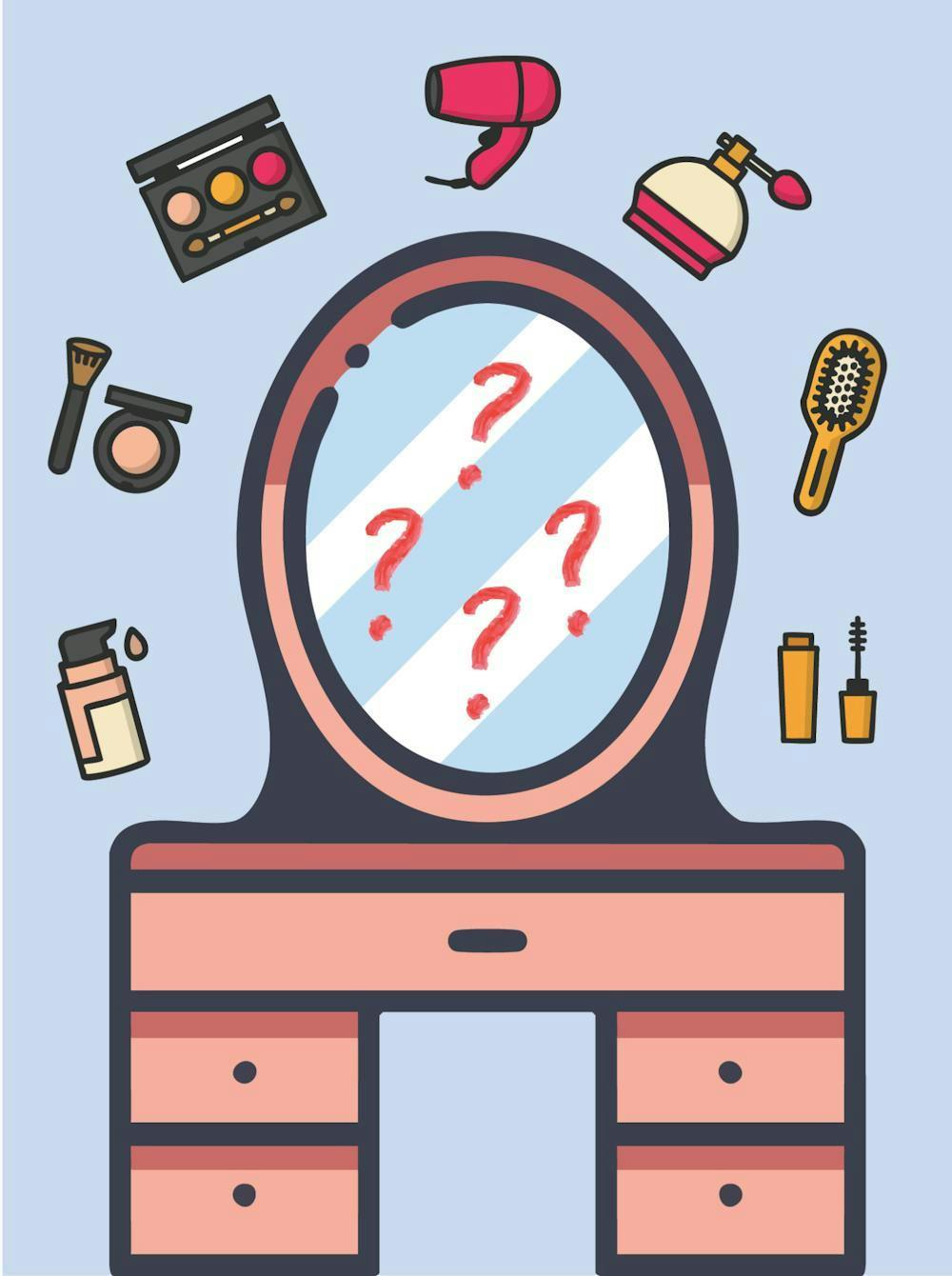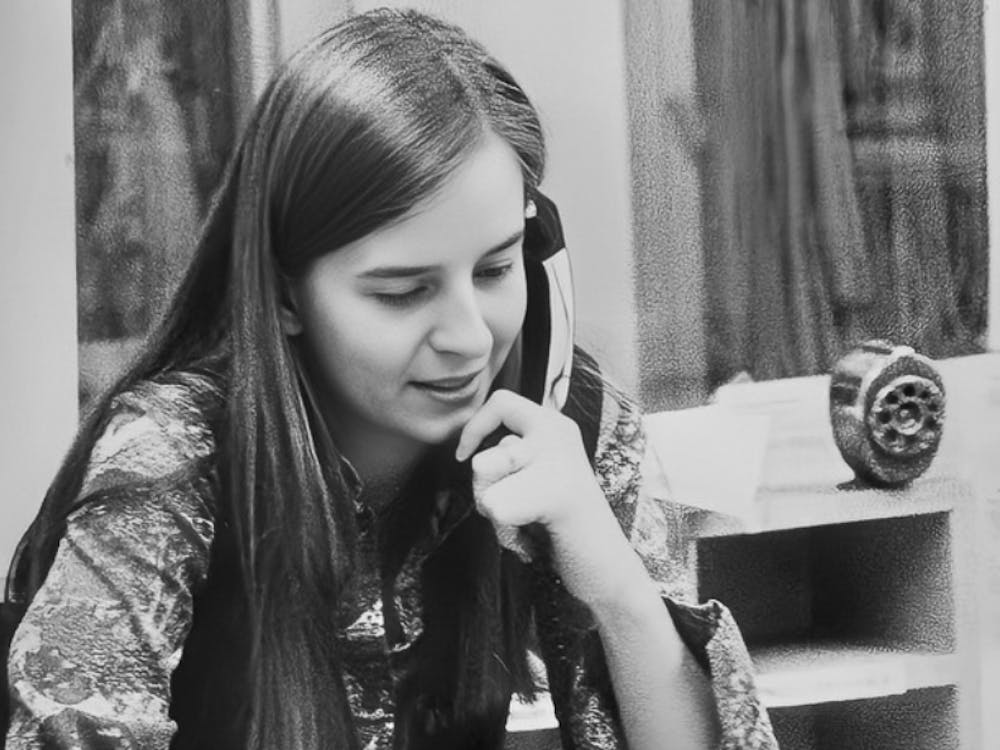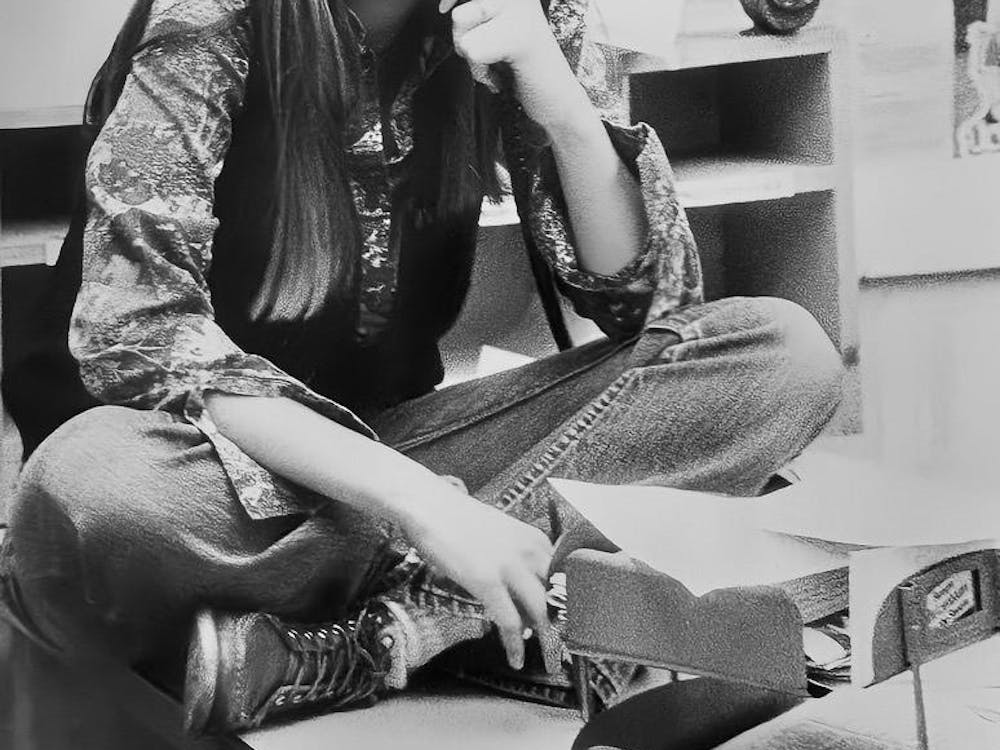Last weekend, as I stood shivering in the Brick Street line, I asked myself a serious question. I had my hair done, desperately pinning down my fake nails, wearing nothing but a tank top, a mini skirt and go-go boots in 30-degree autumn weather. Sure, I felt pretty — but did I feel empowered?
Growing up, my parents always left the latest blockbuster or action flick running on TV. I was enchanted by the women I saw in the media: Hollywood actresses with long shiny hair and perfect bodies, strutting around the screen in tiny dresses and low-waisted shorts.
My most formative glimpses of womanhood were purely sexual. Subconsciously, that’s all I ever learned to aspire to. As a kid, whenever anyone asked me what I wanted to be, I’d give the standard answer: Veterinarian. Writer. Pegasus.
But above all, I wanted to be pretty.
As I grew older, my fantastical career ambitions died down, but my impulse to be pretty never did. To this day, I spend hours doing my hair, shopping for overpriced beauty products and neurotically checking my reflection in every passing mirror, chasing standards of beauty no human woman can possibly reach.
On social media, I’ll often scroll through videos of women celebrating their new nose jobs or plastic surgery operations. Fishing through my mother’s cabinets, I’ll find them crammed full of old beauty products. On vacation, my cousins will sit out of the sun, watching their male relatives swim, so they don’t prematurely wrinkle.
When questioned about what drives these behaviors, they’ll often shrug it off and say, “So what? I don’t want to be pretty for men. I want to be pretty for myself.” In recent years, this ideology has been labeled “choice feminism” — the concept that choosing to engage in beauty culture is an empowering feminist act.
But how much of it is truly for ourselves? When we routinely starve ourselves, surgically alter our bodies and undergo expensive beauty treatments at the risk of immense bodily harm or even death, is it really some grand feminist win, or a product of more insidious patriarchal influence?
In her essay, “Foucault, Femininity, and the Modernization of Patriarchal Power,” Sandra Lee Bartky — University of Illinois at Chicago professor of gender studies — said, “The woman who checks her makeup half a dozen times a day [...] has become [...] a self-policing subject, a self committed to a relentless self-surveillance. This self-surveillance is a form of obedience to patriarchy.”
In essence, when we painstakingly carry out the rituals of beauty — laser off our body hair, apply makeup, slather on 10 different face creams — we’re doing so to appeal to male authority, male sexual appetites and a consumerist economy primarily catering to and designed by males.
Our choices don’t exist in a vacuum. Even if engaging in standardized beauty rituals makes us feel good, it’s important to question what drives this impulse. Does it make us feel desired? Does it earn us social acceptance? Does it make us feel, in a twisted way, that we’re fulfilling our duty as women?
In my case, it’s a mixture of all three. I was not a cute kid. Kids often picked on me for my crooked teeth, my unruly Egyptian curls and the hair above my upper lip. In my teens, upon adopting several gendered grooming habits, I noticed a positive shift in the way people treated me. Suddenly, men began to smile at me on the street. Pretty girls at school spoke to me as an equal.
Enjoy what you're reading?
Signup for our newsletter
Terrified of losing my social credibility, I chased beauty at the expense of my health — patching up the nicks from shaving my body, inhaling carcinogens to chemically straighten my hair, meticulously tracking every calorie I eat. None of it ever bothered me.
If my value as a woman rested solely on my beauty, then it was better to be sick than ugly.
But if being pretty is truly an empowering feminist choice, then why does the labor of being sexually attractive rest solely on women? After all, you’d be hard-pressed to find a man heading Uptown in freezing temperatures wearing a mini skirt. Why is a woman’s appearance valued above all else — her intelligence, her talents and even her life? Why is the female body regarded as a commodity to be altered with each passing beauty trend?
While it’s natural to express ourselves through our appearance, the obsessive preoccupation we have with doing so isn’t. All the time and money we spend modifying our physical appearance can be spent doing what we truly love: sitting out in the sun, even if it gives us wrinkles. Dancing in the rain, even if it ruins our hair. Reaching for seconds, even if we go up a dress size.
When given the choice, we can choose to be so much more than pretty.
Karma Abboud is a sophomore studying international studies and professional writing, as well as Spanish and Arabic. She is an opinion writer for The Miami Student, a mentor in the English Language Program and president of Miami’s Arab Student Association.




